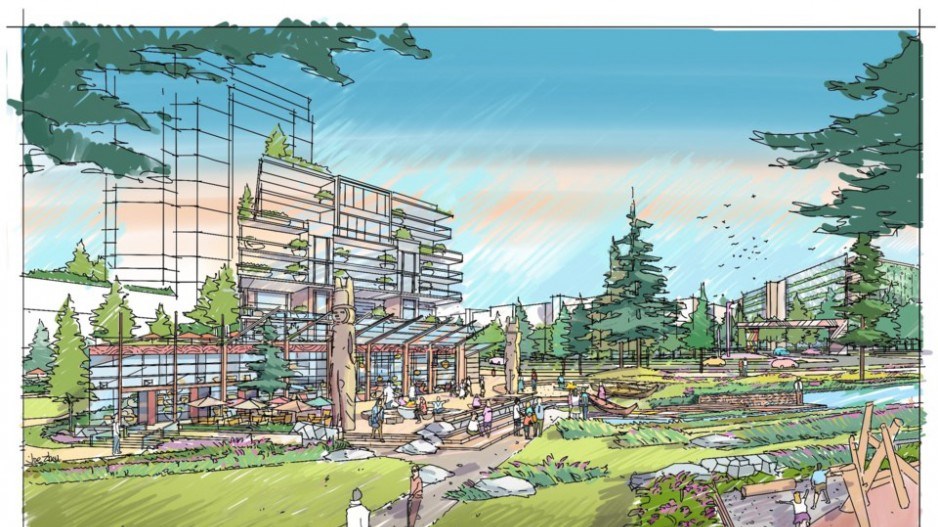The 40-acre Willingdon Lands development is planned to introduce 5,200 new housing units to Burnaby — but also in the works is also a film academy to train Indigenous people from across Canada.
It will be a place for Indigenous people to create careers for themselves in the film industry, in front of the camera or behind it, said Johnna Sparrow-Crawford, Aboriginal relations advisor at Aquilini Development, who is from Musqueam.
Indigenous-led development in Burnaby
Leaders of the Indigenous-owned project, jointly led by Musqueam Indian Band, Tsleil-Waututh Nation and Aquilini Development, spoke at a fireside chat on Oct. 1, hosted by the Sustainable Production Forum.
About half of the Willingdon Lands site (21 acres) will be used for a film studio, including 15 stages.
“We are going to be threaded throughout every stitch of that development,” said Sparrow-Crawford.
In total, the site, located at 3405 Willingdon Ave., will incorporate about 450,000 square feet of film and TV production studio space.
The studio brings the number of full-time on-site jobs to 3,050, with an estimated contribution of $360 million to B.C.’s GDP when the studio is fully operational, according to the site’s master plan.
The film studio will anchor the site’s storytelling district which lies as the south of the Willingdon Lands.
“It’s going to be one of the biggest game-changers, I think, for our people as storytellers to finally find a place for themselves,” said Sparrow-Crawford.
Sparrow-Crawford’s daughter, Faith Sparrow-Crawford, film producer and co-founder of HOST Consulting, added: “We’ve got thousands of years of stories just waiting to be put on screen.”
Sustainability ingrained in Indigenous ways of knowing
Faith said the same mentality of design and incorporating Indigenous identity into all aspects of development can also be applied to the film industry.
“When we try to understand how to make production more sustainable, it’s by including Indigenous voices, including our ways of knowing — our snəw̓eyəɬ — into the systems that are already in place,” she said.
Faith said while there is growing Indigenous representation in film and media, a top-down approach of creating space for Indigenous folks would change the industry for the better.
“If we’re able to ingrain who we are, our ways of knowing and understanding into film, and into the structures that are already existing and shift our mindset away from the status quo and the reluctance to change, we’ll just be in a much better position.”
She acknowledged film is a fast-paced industry with a bottom line.
“Trying to implement change when things are already a moving machine is difficult,” she said. “We need to all be on board with this change, we all need to be making room for each other, for Indigenous folks to actually have a voice.”
Willingdon Lands process
In addition to the storytelling district, the Willingdon Lands development includes a commercial district, park space, daycare, public plazas, dedicated bike lanes, and the daylighting of Sumner Creek.
Sparrow-Crawford said phase 1 of the project will be the studio, and the partnership is readying to construct a presentation centre. Currently in public consultations (it went to public hearing this past May), the project is awaiting approval from the City of Burnaby.
The Musqueam and Tsleil-Waututh Nations purchased the land from the Province in 2014 for $57.9 million.




